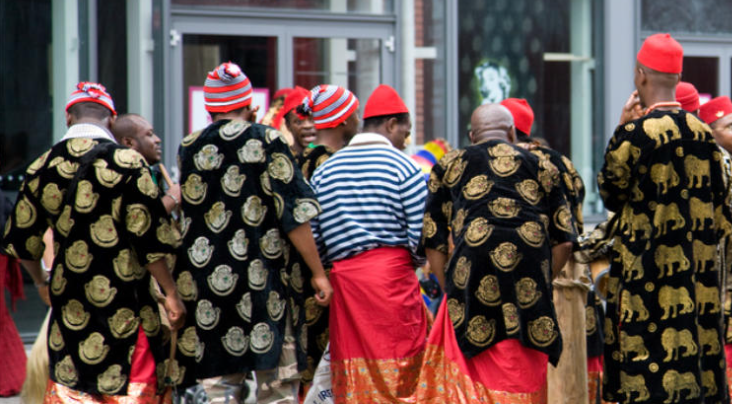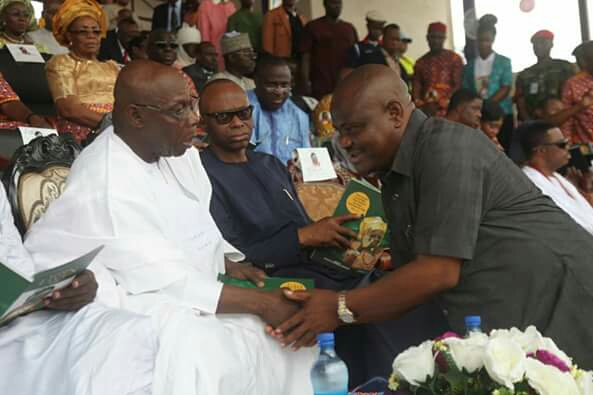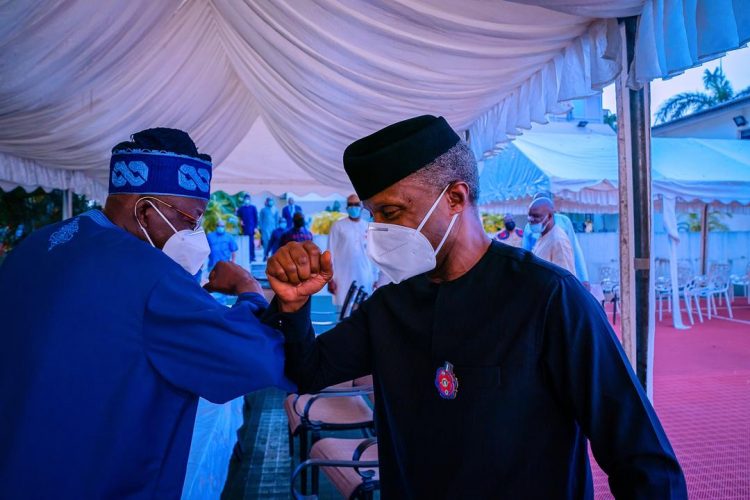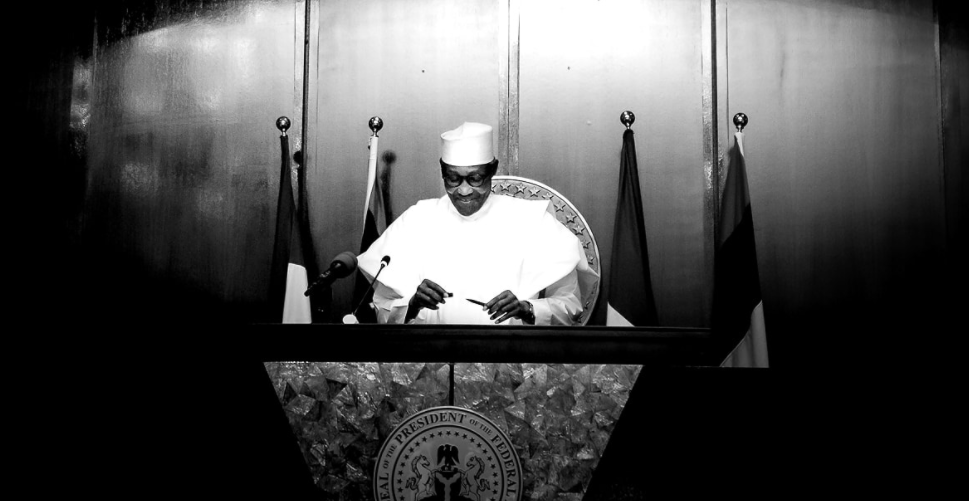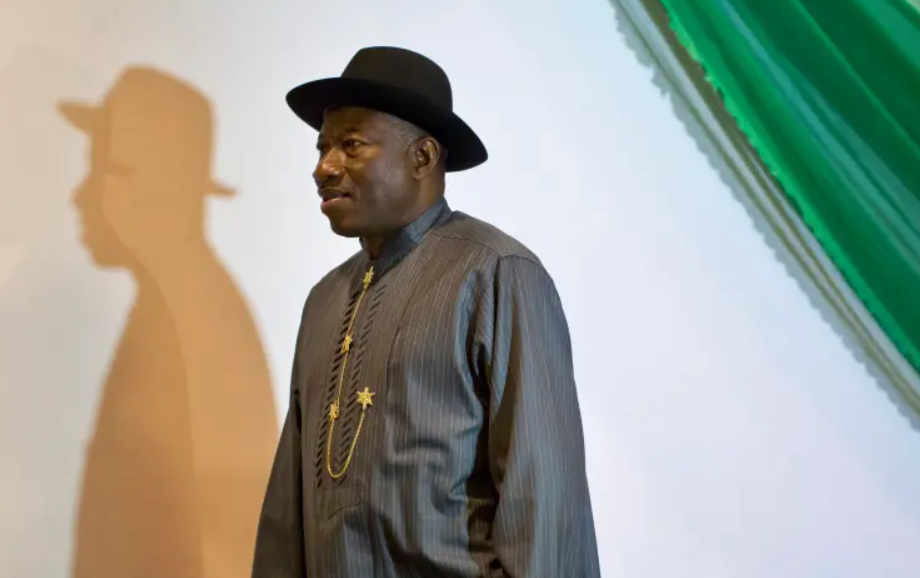Before I am accused of bias, which I am entitled to, anyway, let me immediately state that I write as a citizen of Nigeria who has seen it all, since May 29, 1999, when the present democratic dispensation was birthed.
So, beyond bias, any patriotic citizen that shuns political correctness for realism, can only gravitationally consign the incumbent administration, and indeed the All Progressives Congress (APC), which spawned it, to a dark chapter of Nigeria’s political history. Such a logical assessment can’t be objectively viewed as biased. Otherwise, the majority of Nigerians today would be labelled as biased because the aggregation of opinions nationwide, on the Buhari administration, is a sad commentary.
But we’ve not always had Buhari and the APC at the helm of governmental affairs. Before them, we had the Peoples Democratic Party (PDP) and Olusegun Obasanjo, Umaru Yar’ Adua, and Goodluck Jonathan as presidents, in that order for 16 years. So, the question would naturally arise, how have we fared as a people, during the different periods these two parties held sway?
Let’s begin with the APC because it is presently in charge and, also given the circumstances under which it wrested power from the PDP. An objective assessment of its performance as the ruling party produces a damning verdict. Nigerians are disillusioned and angry with the APC because the party has beaten the PDP in every negative ranking, in less than half of the period the latter was the ruling party.
Advertisement
The verdict on the APC is a justifiable one. It can’t be forgotten how the APC made categorical promises during the electioneering campaigns, which stretched from 2014. The same promises were repeated, even with greater vigour, on the day of the inauguration, May 29, 2015. Buhari, joined by other APC henchmen, made a song of it, and Nigerians believed, that the only obstacle to utopia was posed by the PDP, then the ruling party. On July 11, 2014, then Lagos state governor, Babatunde Fashola, had characteristically deployed unmasked chest-thumping when he declared that “…the only way you and I will have electricity in this country is to vote out the PDP”.
Fashola was widely regarded as APC’s poster boy for good performance in office. As a result, many people took him seriously on this assertion. Based on such rating too, APC subscribers were aligned on Project Remove PDP. Nasir El-Rufai, another APC champion and an impossible critic of former President Jonathan and the PDP, frothed all manner of negative qualifiers, anytime he descended on the Administration for not securing the northeast against Boko Haram’s crusade of terror.
Then the APC won the election, and with Buhari on the saddle, he picked Fashola as a minister, assigning him the strategic portfolio of power, in addition to that of works and housing. If nothing else, at least the poster boy could deploy his prescribed panacea, i.e., the PDP defeat, for the vexatious electricity problem. At this time too, El-Rufai himself had been elected governor of Kaduna state.
Advertisement
But as it turned out, Fashola as minister of power became a sorry embarrassment in no time, if not to himself, obviously to those who believed his sophistry about the PDP and lack of electricity. Simply put, he failed to rise to the occasion. As for El-Rufai, he has since been exposed as an embodiment of the expression, “talk is cheap.” Since assuming office, his Kaduna state, almost daily, features one story or the other, of killings of unimaginable goriness. The airspace, roads, and railways in and around Kaduna are now occupied as havens, by kidnappers, rapists, and killers, under the watch of the self-same El-Rufai who, as opposition arrowhead, was strutting around and pontificating on prescriptions for tackling insecurity.
Many a time as opposition champion, El-Rufai just allowed his pomposity a free rein, when fielding questions from journalists. Like his assertion that “we have no apologies for pointing out to Nigerians that [the Jonathan] government is incompetent and has failed to provide security”. For El Rufai, it was criticisms without borders. It was even better if the criticism was such that had the potential to detract from national security integrity. And he justified it: “If you say we’re politicising [the security situation], fix the problem so that we can’t politicise it…”
Buhari himself is the father of them all, as a disastrous performer in the overall management of the nation’s affairs. One time he is denying, barefacedly, his campaign promises and the next time he is demonstrating irritating incompetence of the highest degree. For instance, it was one of Buhari’s cardinal campaign promises, to “bring permanent peace and solution to the insurgency issues in the north-east; the Niger Delta; and other conflict-prone states and areas such as Plateau, Benue, Bauchi, Borno, Abia, Taraba, Yobe, and Kaduna, in order to engender national unity and social harmony”.
With insecurity presently coursing like tidal waves across the length and breadth of the nation, Buhari is literally nowhere to be found. He is either cocooned in the Presidential Villa in Abuja or in one foreign country or another where the safety of lives and property is accorded serious priority. Nigeria’s security situation has since driven the president’s wife, Aisha, to take up almost permanent residency in Dubai; thus, setting an unenviable record, as the first First Lady, anywhere, that operates from abroad.
Advertisement
Buhari and APC’s poor performance is as all-encompassing as their campaign promises. Today, if you want to taunt a Buhari/APC supporter; that is, one who is yet to defy shame, as many others have done and denounce the president and his party; just ask the supporter how the country is faring. Of course, by such a question, he knows you’re mocking his inability, pre-2015, to see through the façade dressed up by the APC and presented as Buhari, the capable leader for Nigeria.
Who does not remember how Bola Ahmed Tinubu, the acclaimed national leader of APC, employed every adjective of valour to describe Buhari as an aspiring president? During one of those campaign rallies in January 2015, Tinubu literally dressed up the Buhari persona as an epitome of infallibility in character, competence, capacity, and capability: “Today, we have brought to you a great leader. Every nation has a period of its own challenges. When America was challenged, they turned to one great man, their ex-military general, General Eisenhower. When the French (sic) was challenged, they turned to their general, Charles de Gaulle. When Britain was challenged, they turned to their great general, Winston Churchill”.
Evoking images of Shakespeare’s Mark Antony, famed for impactful oratory, Tinubu continued: “Today, Nigeria is challenged: economically challenged, physically challenged, security-challenged. Who do we turn to? General Muhammadu Buhari. He is the right man for the job. If you talk of military experience, he has this abundantly. If you talk of courage, he has this abundantly. If you talk of simplicity, he has it abundantly. If you talk of great determination, a combination of vision and ability to perform, honesty and integrity, he has it abundantly.”
Paradoxically, people now reference that speech for its infamy. Tinubu himself would not speak so glowingly of Buhari today. But then, who would, in all sincerity, spare Buhari a word of praise? Who is that Nigerian who really is not disappointed in Buhari and the APC? Certainly not the teeming populace who contends daily with untold hardship. Certainly not the citizen whose turn it might be next to be hacked down by terrorists. Whenever, not if such killings occur, Femi Adesina or Garuba Shehu, the president’s media aides, would mechanically release a cliched condolence message, obviously drawn from a repertoire of such messages.
Advertisement
Because of Buhari and APC’s disastrous outing, there is now a longing for the PDP years, despite the party’s better-forgotten unimpressive record with governance. But that’s the reality. As sad as it is, the country has turned full circle. The longing for the PDP indeed gives meaning to the aphorism that situates an ex-wife desiring her first husband, even during her second marriage. But then, the PDP itself didn’t do well as a ruling party. Despite other factors, poor performance largely accounted for the party’s loss of the election in 2015.
In hindsight, the PDP really dashed hopes, beginning from 1999. Hopes of citizens, activated by the Military’s cession of power, and the dawn of democratic rule. But it didn’t take long before the party’s mishandling of governmental affairs took its toll on every sector of the economy. That ultimately became the fillip that disparate opposition parties needed to deal the ruling party a devastating blow. The “change” mantra deployed by the APC only coalesced into the mood of the nation at that time. PDP’s misrule had already pushed Nigerians to the brink.
Advertisement
The rest is history, for it became the first time in Nigeria that an opposition party would cause such an upset. But it has also since dawned on Nigerians that misgovernance itself is a relative term. Although on overall objective assessment, the PDP scored poorly, the longing for the pre-2015 era is real and well-informed. It reflects how deep a mess the APC has sunk the country into, in just half of the period the PDP was in charge.
The renewed interest in the PDP serves a very significant lesson: All that glitters is not gold. Nigerians, east, west, north, and south are full of regrets for entrusting power to the APC. The APC has been discovered to be a sham. The electorate (read Nigerians) has metaphorically married two husbands (PDP and APC) and is well situated thereby, to make their preference in 2023. Unlike pre-2015, there are now bases for comparison. Which of the PDP and the APC has fared better in governance?
Advertisement
The odds clearly weigh heavily against the APC. And this is for commonsensical reasons. The party has squandered a lifetime opportunity and failed to learn lessons from the PDP experience. And that defies understanding, given that during electioneering campaigns, the APC made optimal capital out of PDP’s abysmal performance.
Except for the troubling fact that politics in our clime is a game fit majorly for the unscrupulous and adept at intrigues, no APC member would mount a soapbox in 2023 and comfortably make campaign promises. The country’s problems in the years leading to the APC’s assumption of power have remained, and intensified, these seven years that the party has held sway.
Advertisement
Against this background, the PDP should be better poised for good governance going forward. The party has learnt the hard lesson of losing a national election. Perchance it is given an opportunity of a second bite at the cherry, it would ordinarily not want to lose again.
Many a Nigerian is convinced that the APC was only ready for a power grab, not for governance; otherwise, good governance in our circumstances is all about tackling head-on the problems neglected by your predecessor-in-power. The APC has failed to do that. There are no signs that it will ever do so. The party is an evil that should be shunned.
Omenuwa, a lawyer, is a commentator on national issues
Views expressed by contributors are strictly personal and not of TheCable.
Add a comment


